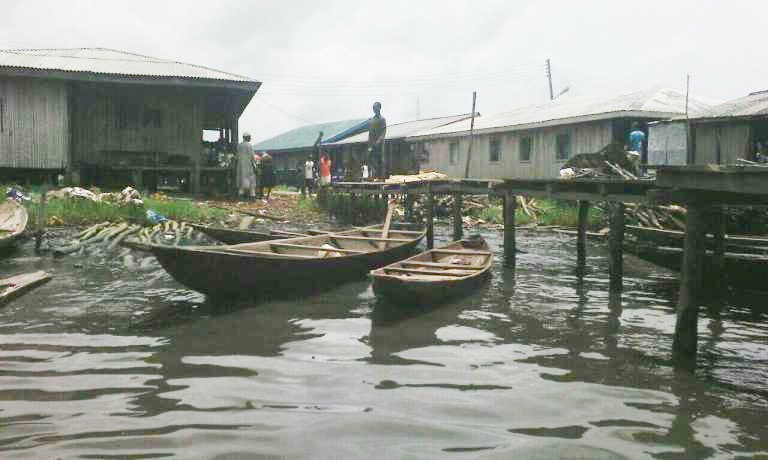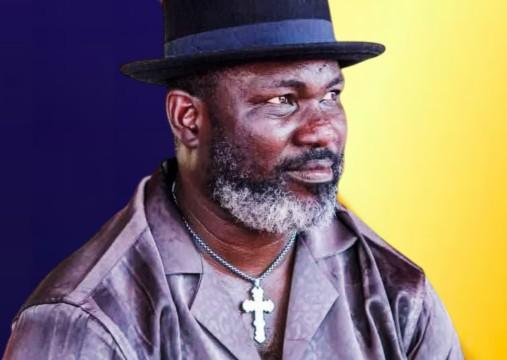WASTE IN GOVERNANCE: Implications for Niger Delta Oil Bearing Communities

Did you know that Nigeria received a $3.3 billion Afrexim bank loan backed by oil revenues to be paid with crude oil set at $65 per barrel with around 90,000 barrels of crude oil earmarked for that purpose?
Imagine this scenario. A man borrowed money to build a house so he could afford shelter, comfort and protection from the wild life. But no sooner he received the fund, he increased his consumption pattern by focusing on his wants rather than his needs. When cautioned, he would respond that everything is in order and therefore there is no need to be alarmed. Sadly, the above narrative paints the stark reality of governance in Nigeria.
According to a report on BusinessDay, "Nigeria’s debt stock, which includes cash borrowed by the Federal Government and the 36 states, jumped more than seven-fold to ₦117.5 trillion as at March 2024 from only ₦13 trillion in 2015." What this means is that in almost a decade, Nigeria's debt profile had grew by more than a ₦100 trillion. Asides the $3.3 billion oil-backed loans secured from Afrexim bank by the Nigerian National Petroleum Company Limited (NNPCL), the national oil company is also "planning to borrow an additional $2 billion in crude oil-backed loans from international creditors to boost its financial inflow," BusinessDay wrote in its report.
Aside Nigeria, at least 11 African countries have so far taken dozens of loans worth billions of dollars secured with their natural resources since the 2000s, and China is by far the top source of funding through policy banks and state-linked companies. However, BusinessDay’s findings revealed that four African countries namely Angola, Chad, Republic of Congo and South Sudan, are having severe debt problems largely resulting from resource-backed loans.
At the state level in Nigeria, in the period between June 2023 and May 2024, the nine oil-producing states in the Niger Delta region received a 13 percent oil derivation fund with Delta state getting the highest share of ₦211.69bn, followed by Akwa Ibom ₦127.77bn, Bayelsa ₦115.53bn, and Rivers ₦110.96bn; while others include Edo ₦22.36bn, Ondo ₦19.45bn, Imo ₦8.88bn, Anambra ₦6.76bn, and Abia ₦5.03bn.
In the first five months alone of 2024 (January–May) the oil producing states shared a total of ₦300.49 billion, with Delta receiving ₦100.42bn, followed by Akwa Ibom N61.49bn, Bayelsa ₦56.67bn, Rivers ₦51.59bn, Edo N10.20bn, Ondo ₦8.85bn, Imo ₦5.01bn, Anambra N3.52bn, and Abia ₦2.74bn. Also, in the same time frame, the oil producing states received allocation from the Federation Account with Delta receiving ₦219.97bn, Rivers ₦164.74bn, Akwa Ibom N148.49bn, Bayelsa ₦132.50bn, Edo N54.78bn, Cross River ₦33.54bn.
Sadly, despite these huge loans and derivative funds, infrastructures on ground are almost zero, particularly in the Niger Delta region where the oil and gas sector, which the government relies upon to offset a huge chunk of its debts, is located. More tragic too is the poor state of oil bearing communities in the creek locations of the Niger Delta region despite their status as host to oil companies and their flow stations.
This neglect was demonstrated of recent, specifically on Monday (July 22, 2024) when a group of protesting women from oil producing communities in Delta state's Gbaramatu Kingdom, stormed the Jones Creek flow station demanding that host communities be connected to the turbine powering the platform so that they too can enjoy the benefit of power (electricity) to help ease their untoward plights especially as these riverine communities are not connected to the national power grid. Sadly, such a protest is one out of many mass action embarked upon by creek dwellers but with little or no improvement to their situation till date, despite the billions earned from oil exploration. Asides the issue of electricity, other challenges include the lack of potable water, inadequate and well-furnished health and educational centers, poor communication and transportation facilities among others.
In the township and city centers, majority of the federal and state roads among other transport infrastructures are in bad shape, posing danger to road users, particularly travelers whose lives are at risk. Take for instance the $823 million Abuja Light Rail project which the federal government took Chinese loans to build and that cost $50 million a year to service, but which rots away for four years after its completion before resuming in 2024 with free rides for scarce commuters till the end of the year.
Coming down to the state level, a review of Delta state (the highest beneficiary of federal allocation and 13% derivation funds) budget performance reports as published by Sahara Reporters shows that ₦6.8 billion was spent in the first three months of 2024 for purchase of vehicles out of a budgeted sum of ₦9.9 billion initially earmarked for the purchase of 50 Toyota SUVs vehicles, 60 Hilux pick-up, 150 Toyota Corolla and 10 Coaster buses. Meanwhile, the state's capital expenditure that comprises of ₦2.8 billion for its ministry of energy, ₦1.8 billion for housing sector, ₦16 million for water resources, ₦201 million on Trade and Investment, ₦400.1 million for capital expenditure for the Ministry of primary education, ₦667.9 million for the Ministry of secondary education, ₦1 billion for health sector; all sum up to ₦6.8 billion which is the same sum expended on vehicle purchase alone.
In all, both the federal and state governments have spent loans and revenues recklessly. Government waste or poor use of funds is also noticed in extravagant foreign and local trips, high procurement rate of operational assets, budget padding by lawmakers, inflation of contract costs among other corrupt practices. So far, the President Bola Ahmed Tinubu has not shown any real commitment to cutting down on the cost of governance despite inheriting a bad economic challenge from the previous administration, a challenge that requires prudence in the use of state resources. As of July 2024, Nigeria ranks fourth among countries with the highest debt-to-revenue ratio, signalling a high risk of a debt crisis. Only Sudan, Venezuela and Yemen have higher debt-to-revenue ratios than Nigeria. Fuel subsidies, additional borrowings, FX devaluations, and higher borrowing costs mean Nigeria’s total debt could hit ₦148 trillion by year-end.
But in all of these, the stark reality is that there is no plan to utilise these debts and revenues to build befitting and lasting infrastructures for Nigerians, particularly oil-producing host communities in the coasts, whose inhabitants continue to bear the brunt of underdevelopment and pollution, as well as grapple with neglect from government and other stakeholders in the region, despite the contributions of the oil and gas sector to Nigeria's survival.
By the nature of these creek communities, a responsible government ought to by now fashion out a special development blueprint to give special attention to inhabitants in the oil territory access to affordable housing, improved transport infrastructure, better healthcare, stable electricity, and opportunities for employment and wealth creation. Agencies of government established to look into the plights of inhabitants in the Niger Delta, have over the years become conduit pipes to enrich cabals who pull the strings.
Indeed, borrowing or seeking loans is not a bad thing. But when loans and funds are diverted from the purposes they were secured for in the first place, then waste begins. It is often said in the local parlance that one should invest in what brings him/her money. But alas, the reverse is the case for oil bearing communities in the coast. It is so pathetic to note that the Goose that lays the golden egg will continue to pay the price of government neglect in infrastructures in its terrain and continue to experience chronic poverty and pollution as long as waste of funds marked by a high cost of governance and corruption continues unabated.
Image: Polobubo community in Egbema Kingdom
#penglobalreport #discourse



